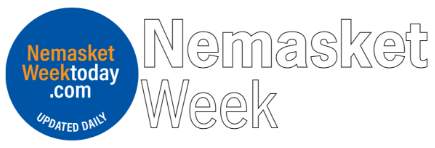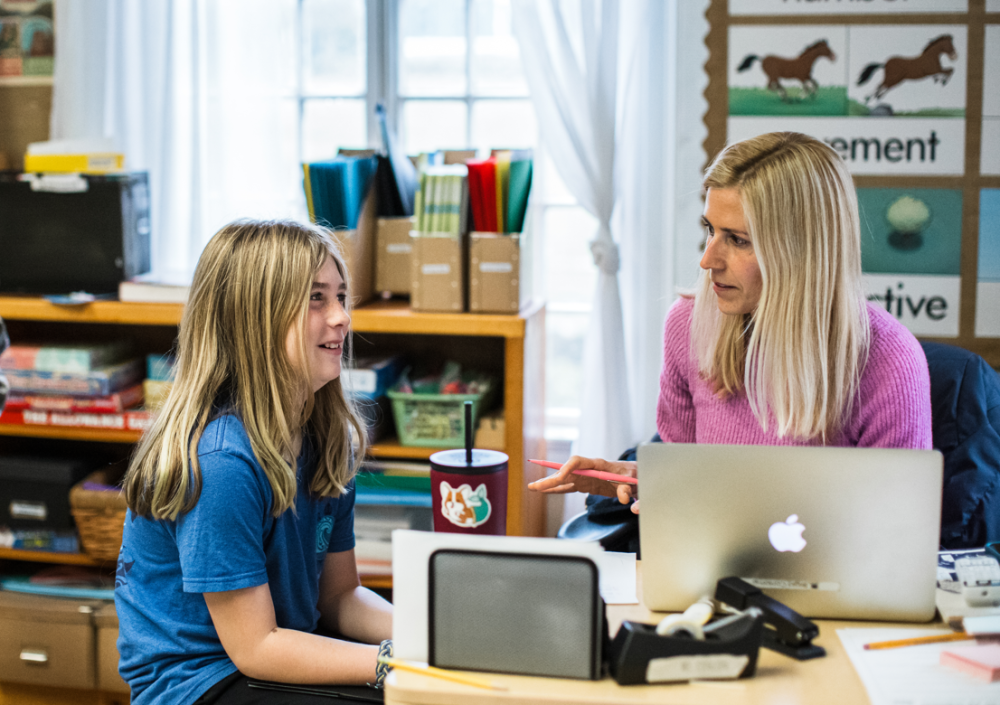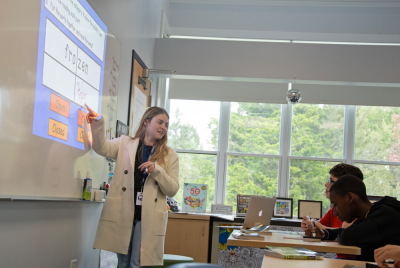Gaining confidence with dyslexia
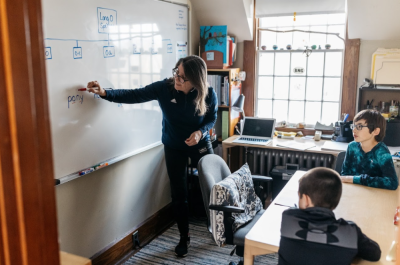
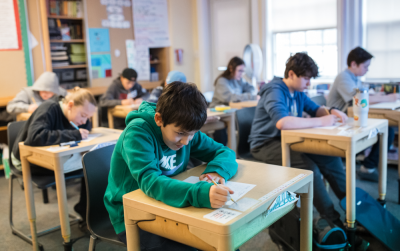
DARTMOUTH — At 8 years old, Lakeville’s Dylan Chagnon was diagnosed with dyslexia, which is a language-learning difference that primarily affects a person’s reading.
His mother, Anna Chagnon, said she noticed him struggling with his reading fluency and understanding in the third grade, and other students began to notice and make comments.
“He began to shut down,” Anna said. “He thought he was the stupidest kid in the class.”
After facing bullying for his learning difference, the Chagnon family began to seek out opportunities where Charlie could be around peers who learned differently like him.
After trying out a summer program focused on dyslexia at Friends Academy, a private school in Dartmouth, she decided to enroll him in its full-time program, which he attended from fourth through eighth grade.
Though a private school, the academy accepts students who may have learning differences and provides a specialized program to help them. The Sally Borden Program, which is an integrated learning experience that serves students in grades three through eight who have language-based learning differences, was instituted 17 years ago.
With October being Dyslexia Awareness Month, Sally Borden Program Director Analise Brower said it's important for people to understand the prevalence of language-based learning differences, with approximately one in five people, or 20%, of the population having one.
Similar to public schools, the private academy offers literacy assessments to gauge where student strengths and vulnerabilities lie, Brower said. Students are assessed on a broad range of skills, including their ability to break down letters and sound, reading fluency, comprehension and vocabulary.
Anna said Dylan enjoyed attending smaller classes with other students who shared his struggles.
“He finally felt he was in a place that he felt not only supported by his teachers, but also by his classmates because everybody had the same issue,” she added. “That did absolute wonders for his self esteem.”
It also helped with his reading as he had access to tools and curricula that were designed to specifically teach students with learning differences, Anna said. Though it may take him longer to get to the answers and he may get there differently, he has the confidence to know he can get there.
Now, “he’s thriving,” she said, adding he’s 15 years old, attending Bishop Stang High School, which is also in Dartmouth. His grades are up and he attended a summer program in Spain also designed for students with dyslexia.
“He's doing fantastic and I think he wouldn't have been in the same spot if he didn't go to Sally Borden,” Anna said. “It definitely was a transformation for him.”
Brower said dyslexia is not just the “letter reversals” that often come to mind and not understanding what is being read, but “it’s much much more complex than that.”
She said often strong cognitively and creative thinkers, people with dyslexia are accustomed to using their brains in different ways that lend to these strengths — or as Anna put it: superpowers.
Anna’s other son, 12-year-old Nicky Chagnon, has a number of learning difficulties, but not dyslexia. She explained both sons were adopted and Nicky’s disabilities were the result of his birth with neonatal narcotics exposure, which has affected his vision, his understanding of social interactions and has led to some characteristics similar to those with autism, such as stimming.
However, he was still able to enroll in the Sally Borden Program, starting in the fourth grade. Now in the sixth grade, Anna said he, too, is thriving.
“We're so thankful they did because he's blossomed there,” Anna said, adding he was even integrated in the regular reading classes at Friends Academy at one point because his reading became “very fluent.”
Brower said the Sally Borden Program aims to support “students’ skill development and neurological strengthening and rewriting in all sorts of areas pertaining to literacy and executive functioning.”
The intent of intervention isn’t to “cure” someone with a language-based learning difference, but rather to provide the necessary tools for navigating their processing differences in an easier and smoother way, she said.
Brower added, “We're a real difference maker for our students, and they are huge difference makers for our community because of who they are, because of their tenacity and their resilience and their creativity and their personalities and their individual gifts and talents.”
